Humidifiers are usually used to add moisture to the air, which can help with conditions like sinus congestion, dry skin, and static electricity. You should fill your humidifier with clean water and change the filter regularly to prevent the growth of mold and bacteria. There is a lot of debate surrounding purified water vs. distilled water for humidifiers. Which one is better? Is one more effective than the other? This article will explore the differences between purified and distilled water, and help you decide which one is best for your needs.
Distilled vs Purified Water For Humidifier
The debate between using distilled water and purified water for humidifiers has been going on for years. Some people swear by distilled water, while others find that purified water works just as well (if not better). So, which is the right choice for you?
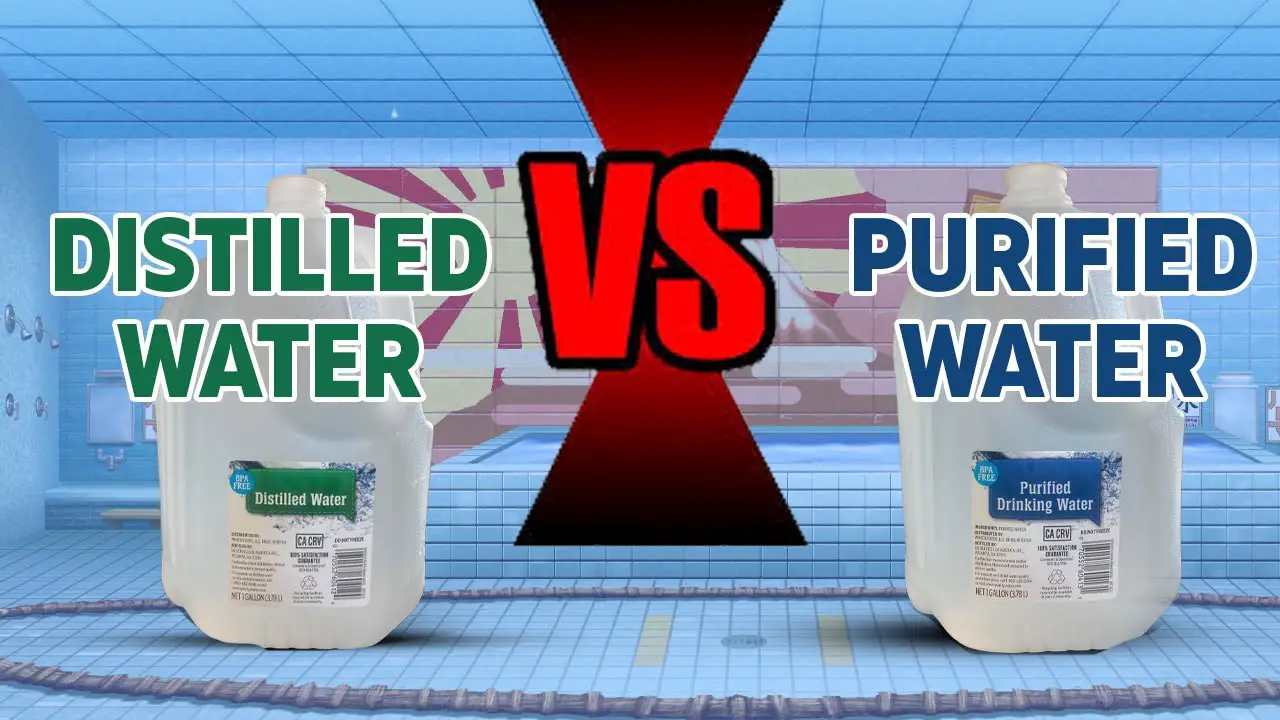
There are a few things to consider when making your decision. First, let’s take a look at the difference between distilled water and purified water. Distilled water has been boiled to remove all impurities. This means that it is completely free of minerals, chemicals, and other contaminants. Purified water has also been treated to remove impurities, but it may still contain some minerals and other trace elements.
So, why would you want to use distilled water in your humidifier? The main reason is that distilled water will not leave any deposits in your humidifier. Over time, minerals in water can build up and clog the humidifier.
Another benefit of using distilled water is that it will not promote the growth of bacteria or other microorganisms. Although most humidifiers come with filters that remove these contaminants, some people are still concerned about them. If you’re one of those people, using distilled water in your humidifier may give you peace of mind.
So, what’s the downside to using distilled water? The main disadvantage is that it costs more than purified water. Also, you’ll need to replace the water more often because it evaporates more quickly. If you’re looking for a cost-effective option, purified water may be the way to go. Although it still contains some minerals, it will not leave deposits in your humidifier. And, depending on the purification process, it may also help to reduce the growth of bacteria and other microorganisms. So, which is better?
The answer depends on your needs and preferences. If you want the absolute best for your humidifier, distilled water is probably the way to go. But if you’re on a budget or don’t mind replacing the water more often, purified water may be a better option. Whichever you choose, make sure to follow the manufacturer’s instructions for using water in your humidifier. This will help ensure that your humidifier lasts for years to come [1].
What Is the Best Water for a Humidifier?
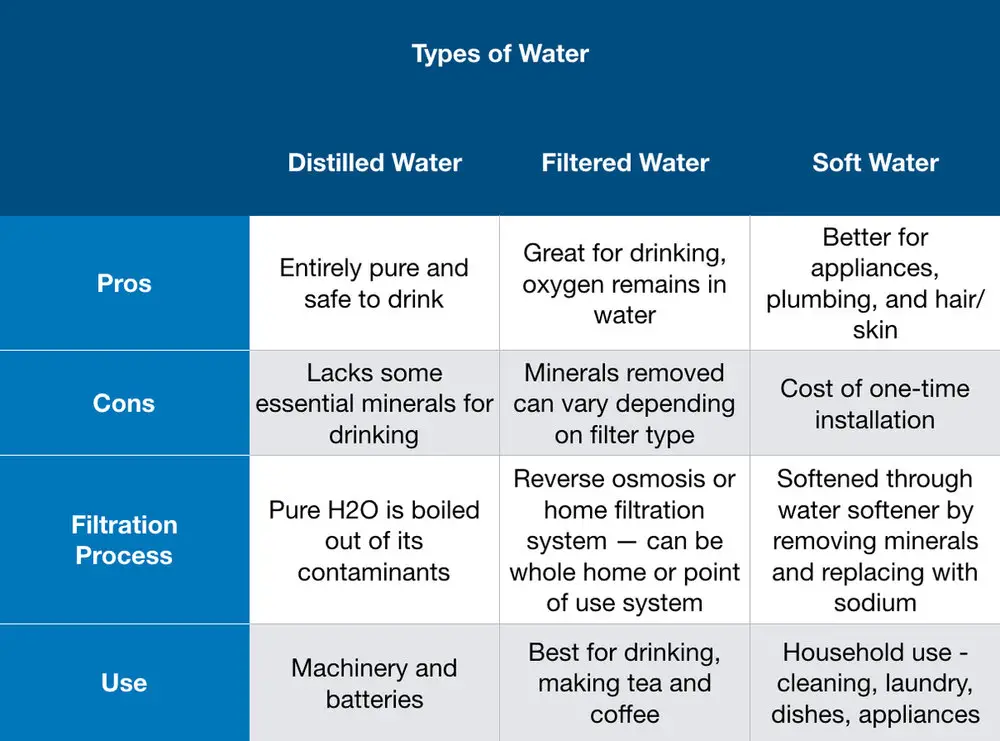
Both distilled and purified water won’t cause white dust.
The humidifiers can cause white dust if the water has minerals. If you have hard water, then it likely contains minerals like magnesium and calcium. When the water evaporates, it leaves these minerals behind as a white powdery substance. While both distilled and purified water are free of minerals, there is a key difference between the two. Distilled water is completely pure, while purified water has been treated to remove impurities but may still contain some dissolved minerals.
Both distilled and purified water won’t cause irritations.
If you have sensitive skin, you may be concerned about using water from your tap in a humidifier. After all, the water contains chlorine and other chemicals that can cause skin irritations. But distilled and purified water goes through a purification process that removes these impurities, so they won’t cause any irritation.
Purified water is a cheaper option.
While both distilled and purified water are good choices for a humidifier, purified water is usually the cheaper option. That’s because the purification process is less intensive than distillation, so it doesn’t require as much energy to produce. On average, you’ll pay about 0.50 dollar per gallon for purified water, while distilled water will cost you about 1.50 dollars per gallon
Distilled water is the better choice if you have a medical condition.
If you have a medical condition like asthma or allergies, it’s important to use distilled water in your humidifier. That’s because even trace amounts of impurities can cause problems for people with these conditions. So, if you want to err on the side of caution, go with distilled water.
Distilled water is the safest and foolproof option.
Both distilled and purified water are safe and effective choices for use in a humidifier. If you have hard water, distilled water is the best choice to prevent white dust. If you have sensitive skin, either type of water is a good choice to avoid irritation. Purified water is usually the more affordable option, while distilled water is the best choice for people with medical conditions. Ultimately, distilled water is the safest and most foolproof option [2].
Other water types and their safety for your humidifier
Tap water: Most municipal water supplies are treated with chemicals to kill bacteria and other contaminants. However, these chemicals can also be harmful to your health if inhaled in large quantities.
While some humidifier models come with filters that remove these chemicals, it’s still best to use distilled or purified water to be on the safe side.
Spring water: While spring water may seem like a good option for your humidifier, it can contain high levels of minerals that can clog your machine and cause it to break down. If you’re using spring water in your humidifier, be sure to clean it regularly to prevent build-up.
Distilled water: Distilled water is the best choice for your humidifier, as it contains no minerals or contaminants that could harm your machine or your health.
So, what’s the verdict?
Purified or distilled water is the best choice for your humidifier, as it contains no harmful minerals or contaminants. Using tap or spring water can be dangerous, as these waters are often treated with chemicals that can be harmful when inhaled. Cleaning your humidifier regularly is essential if you’re using any type of non-distilled water.
How to make distilled water?
The water for your humidifier should be as clean as possible. This means that you have two options: distilled or purified water. But what’s the difference?
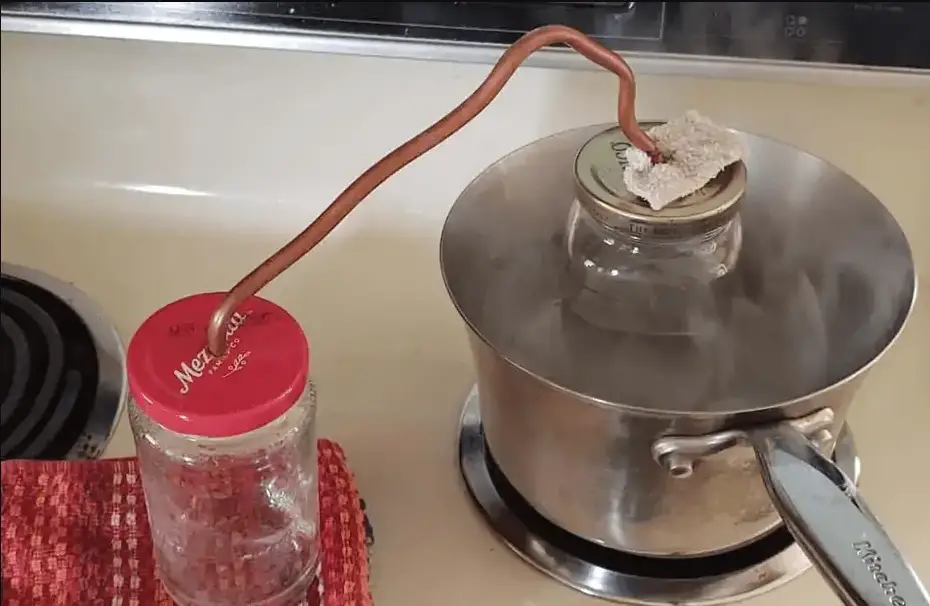
Distilled water is made by boiling water and then collecting the steam. This leaves behind any impurities, minerals, or chemicals that were in the water. However, it also strips the water of any beneficial minerals. To do this at home, you’ll need a distiller. To use a distiller, fill it with water and then turn it on. The distiller will boil the water, and the steam will rise into a condenser. The condenser will cool the steam back down into the water, which will be collected in a holding tank. This process can take several hours, so it’s best to make distilled water in advance if you plan on using it in your humidifier.
Purified water has been filtered to remove impurities, minerals, and chemicals. However, unlike distilled water, it still contains some of the beneficial minerals that are good for your health. You can purify water at home using a water filter. There are many different types of water filters available on the market, so you’ll need to choose one that’s right for you. There are also many different ways to filter water, so be sure to do your research before making a purchase [3].
How to fill and use the humidifier?
Most humidifiers come with a water tank that needs to be filled with either distilled or purified water. To fill the water tank, remove it from the humidifier unit and unscrew the top. Fill the tank with either distilled or purified water to the fill line and screw the top back on. Once the water tank is full, place it back into the humidifier unit.
To start using the humidifier, press the power button to turn it on. Adjust the humidistat to your desired level of humidity. The humidifier will automatically turn on and off to maintain the desired level of humidity in the room. You should consider some tips for using the humidifier properly:
- Keep the humidifier clean to prevent the growth of mold and bacteria.
- Change the water daily to prevent the growth of bacteria.
- Don’t overfill the water tank.
- Don’t use tap water. Use distilled or purified water instead.
- Empty the water tank when you’re finished using the humidifier for the day.
- Don’t let the humidifier run while you’re not home.
Is It Better to Put Cold or Hot Water in Humidifiers?
While filling the humidifiers with water you should consider if it should be cold or hot water.
Some people might say that it is better to use cold water so it can humidify the air faster, but this is not always the case. The truth is that it all depends on the type of humidifier you have.
On the other hand, if you have a warm mist humidifier then using hot water is actually better. The reason for this is that the hot water will be turned into steam by the humidifier before being released into the air. And the steam will be able to hold more moisture than the cold mist, providing you with better relief.
So, when it comes to using water in humidifiers, it all boils down to the type of humidifier you have. If you have a cool mist humidifier, use cold water, and if you have a warm mist humidifier, use hot water.
Why Is Distilled Water Better for Humidifiers?
Distilled water is often recommended for use in humidifiers because it is free of impurities that can clog the machine or be released into the air.
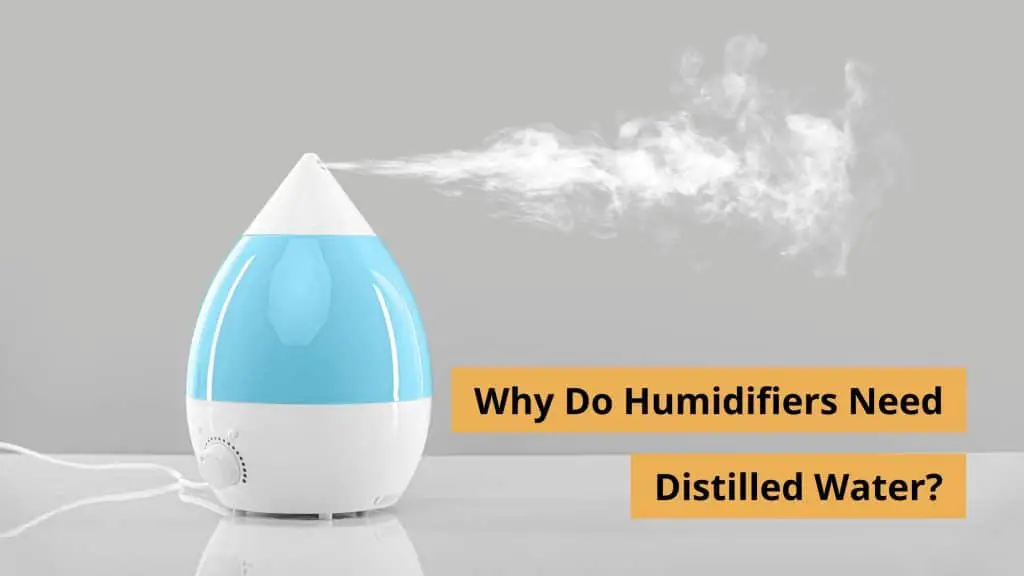
Regular tap water contains minerals like calcium and magnesium, which can build up in the humidifier and reduce its efficiency. In some cases, these minerals can also be released into the air along with water vapor, which can cause respiratory problems for people with allergies or asthma.
Distilled water, on the other hand, has been purified to remove all impurities, including minerals. This makes it ideal for use in humidifiers as it will not build up and clog the machine.
Comparison of Purified Water and Distilled Water for Humidifiers
Choosing the right type of water for your humidifier is crucial for optimal performance and maintenance. Below is a comparison of purified water and distilled water, helping you determine which is the better choice for your humidifier.
| Aspect | Purified Water | Distilled Water | Advantages | Considerations |
|---|---|---|---|---|
| Water Purity | Treated to remove impurities and minerals, such as through reverse osmosis or ion exchange. | Water that has undergone distillation to eliminate impurities and minerals. | Highly pure water with minimal mineral content. | Purity levels can vary based on the purification method used. |
| Mineral Buildup | Less prone to mineral buildup compared to tap water, reducing maintenance requirements. | Mineral-free, preventing mineral deposits and white dust in the humidifier and the air. | Extends the lifespan of the humidifier and ensures clean mist output. | May have higher upfront costs for purification equipment or ongoing costs for purchasing purified water. |
| Maintenance | Requires minimal maintenance due to reduced mineral content, with less frequent cleaning needed. | Minimizes maintenance needs, as it doesn’t leave mineral deposits or require special cleaning solutions. | Saves time and effort on humidifier upkeep and cleaning tasks. | Costs may be associated with purchasing purified or distilled water, but maintenance is minimal. |
| Humidifier Lifespan | Helps extend the lifespan of the humidifier by reducing mineral-related wear and tear. | Significantly extends the humidifier’s lifespan by preventing mineral buildup and damage. | Ensures a longer and more efficient operation of your humidifier. | Consider the cost of water relative to potential savings on humidifier replacements. |
| Clean Mist Output | Provides relatively clean mist output but may have trace impurities or minerals depending on the purification method. | Ensures the cleanest mist output without any impurities or minerals that can affect air quality. | Creates a healthier and more comfortable indoor environment, especially for those with respiratory issues. | Balancing the cost of water against air quality benefits is essential. |
Explanation of the table:
- The table provides a comparison of purified water and distilled water for use in humidifiers, addressing aspects such as water purity, mineral buildup, maintenance, humidifier lifespan, and mist output.
- Each aspect is described, highlighting the advantages and considerations associated with using purified or distilled water in your humidifier.
FAQ
Should I use distilled or purified water in my humidifier?
If you’re like most people, you might not think there’s much difference between distilled and purified water. After all, they both come from the tap, right? Wrong! Although both types of water start out as regular old H2O, they go through different processes to get to your home. Here’s a closer look at the two types of water and how they can impact your humidifier.
What is distilled water?
Distilled water is water that has been boiled and then cooled so that all impurities are left behind. This process removes minerals, bacteria, and other contaminants from the water, leaving only pure water behind.
What is purified water?
Purified water is water that has been treated to remove impurities. This can be done using a variety of methods, including reverse osmosis, deionization, and carbon filtration.
Is purified water okay to use in a humidifier?
Yes, purified water is perfectly safe to use in a humidifier. It’s often the preferred choice for people who have allergies or sensitivities to certain chemicals or contaminants.
Is distilled water okay to use in a humidifier?
Yes, distilled water is also safe to use in a humidifier. However, because it’s been boiled, it can sometimes contain traces of impurities that were not completely removed during the distillation process.
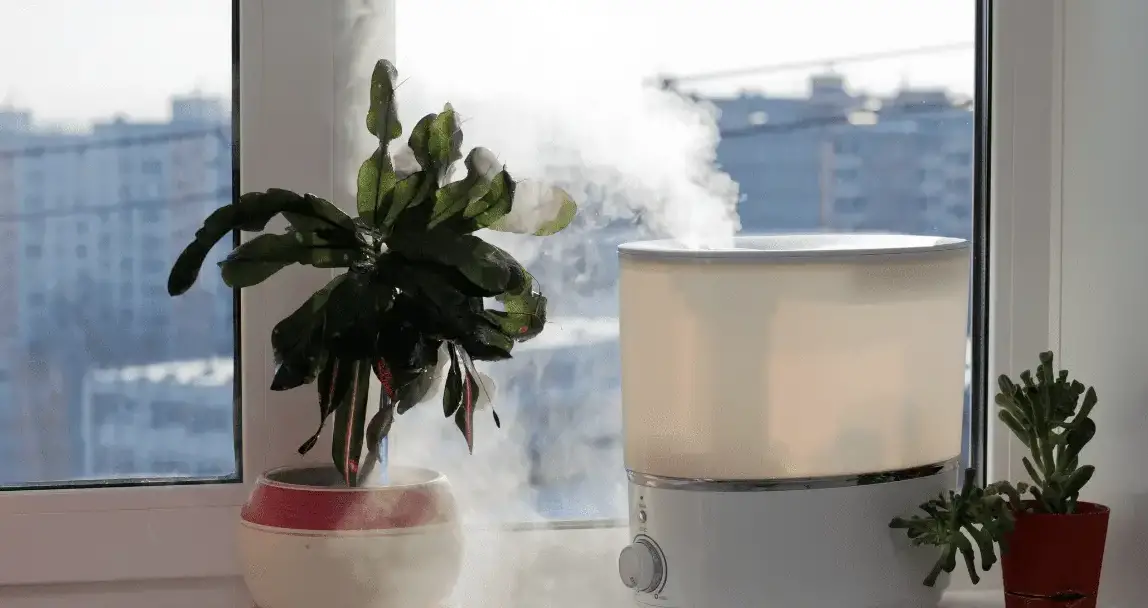
Can I use tap water in my humidifier?
You can use tap water in your humidifier, but it’s not the best choice. Tap water can contain minerals, bacteria, and other contaminants that can clog your humidifier or make you sick. If you do use tap water, be sure to clean your humidifier often to prevent these contaminants from building up.
Can I use boiled water in a humidifier?
Yes, you can use boiled water in a humidifier. However, it’s important to let the water cool completely before adding it to your humidifier. Boiling water can kill bacteria, but it can also concentrate minerals and other impurities that can be harmful if inhaled.
Is there a difference between distilled water and deionized water?
Yes, there is a difference between distilled water and deionized water. Distilled water has been boiled to remove impurities, while deionized water has been treated with chemicals to remove impurities. Deionized water is often used in industrial settings because it’s more effective at removing contaminants than distilled water.
Can I use mineral water in my humidifier?
No, you should not use mineral water in your humidifier. Mineral water contains minerals that can build up in your humidifier and make you sick if inhaled.
Does boiling water distill it?
Yes, boiling water does distill it. This is because all impurities are left behind when water is boiled. Moreover, distilled water has a lower boiling point than other types of water, so it’s easy to distill at home.
How can humidifiers influence men’s health?
Humidifiers can help men’s health by keeping the air moist and preventing dryness. This can help to reduce irritation and inflammation of the skin, mucous membranes, and respiratory tract. In addition, humidifiers can help to reduce the risk of infections, as well as the severity and duration of colds and flu.
How often should I change the water in my humidifier?
You should change the water in your humidifier every 1-2 weeks, or more often if you live in an area with hard water. If you don’t change the water often enough, minerals and other impurities can build up in your humidifier and make you sick.
Can mold grow in my humidifier if I use distilled water?
No, mold cannot grow in distilled water. This is because all impurities have been removed from the water during the distillation process. However, if you don’t clean your humidifier often, mold can still grow in the reservoir and other parts of the humidifier.
What are the main differences between purified water and distilled water for a humidifier?
Purified water and distilled water are both treated to remove impurities, but distilled water undergoes a specific distillation process, making it free of minerals and contaminants. Purified water may still contain some minerals and impurities, although at lower levels than tap water.
Is distilled water safer to use in a humidifier than purified water?
Distilled water is generally safer for humidifiers as it is completely free of minerals and impurities. Using distilled water helps prevent mineral buildup and white dust, which can occur with purified water due to its lower but still present mineral content.
Does using purified water in a humidifier require more frequent cleaning compared to distilled water?
Yes, using purified water may require more frequent cleaning of your humidifier compared to distilled water. The lower mineral content in purified water reduces the risk of mineral buildup, but some minerals may still accumulate over time, necessitating more regular cleaning.
Which type of water is more cost-effective for a humidifier: purified or distilled?
Purified water is generally more cost-effective for a humidifier than distilled water. While both are treated to be cleaner than tap water, purified water is often more affordable and easier to obtain than distilled water.
Can I use both purified and distilled water interchangeably in my humidifier?
Yes, you can use both purified and distilled water interchangeably in your humidifier. Both options are suitable for preventing mineral buildup and maintaining the humidifier’s efficiency.
Is there a noticeable difference in air quality when using purified water or distilled water in a humidifier?
The difference in air quality between using purified water and distilled water in a humidifier is usually minimal. Both options will provide cleaner and healthier air compared to using tap water, but distilled water may offer a slight advantage in preventing mineral-related issues.
Are there any specific situations where one should be preferred over the other for a humidifier?
In situations where extremely pure water is required, such as for specific medical equipment, distilled water may be the preferred choice. Otherwise, both purified and distilled water are suitable for most humidifiers.
Useful Video: Benefits Of Distilled Water In Humidifier
Conclusion
The type of water you use in your humidifier can have a big impact on its performance and lifespan. If you’re unsure which type of water to use, distilled or purified, it’s important to understand the difference between the two. Distilled water is water that has been boiled and then condensed back into a liquid form. This process removes impurities, minerals, and other contaminants from the water. Purified water is water that has been treated with a filtration system to remove impurities, minerals, and other contaminants. So, which type of water should you use in your humidifier? The answer may depend on the specific needs of your humidifier. If you’re using a warm mist humidifier, for example, distilled water is a good choice. If you’re using a cool mist humidifier, however, either type of water will work well.
References
- https://hvacguides101.com/what-type-of-water-to-use-in-a-humidifier/
- https://www.purewaterinc.com/Distilled-Water-for-Humidifiers
- https://www.everlastingcomfort.net/blogs/comfy-reads/how-to-make-distilled-water-for-a-humidifier





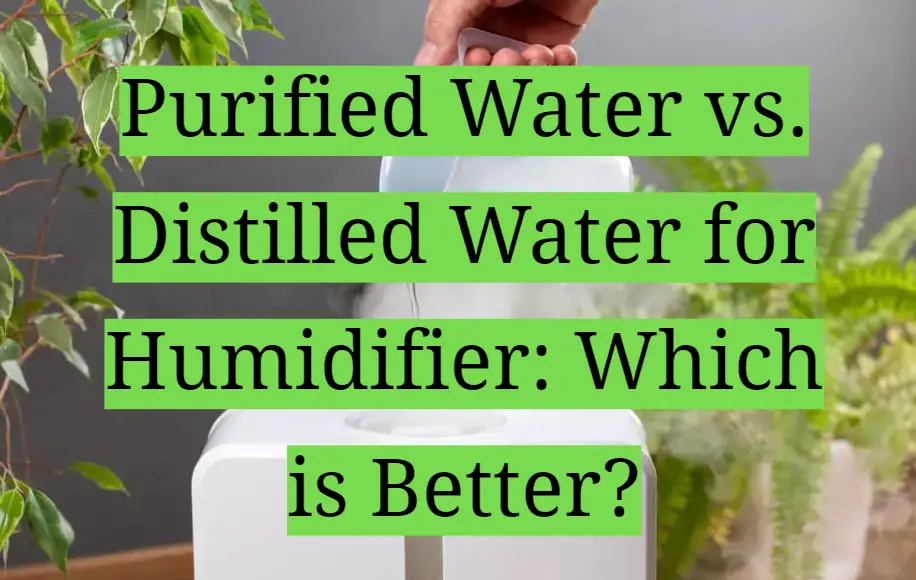








Leave a Reply